The spear is a deceptively deadly weapon, for though it lacks the long blade edge of the sword or the cleaving powers of the axe, the spear is a thrusting weapon, and thrusting wounds, while less impressive than slashing or cleaving blows, are often more deadly. Spear wounds can strike deep, often hitting vital organs and creating deep wounds with large amounts of internal bleeding that is difficult or impossible to dress and treat. The long shaft not only gives the spearman reach, but its mass and leverage ensure that the strike hits with substantial force.
The spear was long enough that warriors behind the first rank in the medieval shield wall could thrust their spears out from behind their comrades, lending their weight into the combat. Alternatively, they could also throw the spear to deadly effect. The 13th century Norwegian battle manual, the Konungs skuggsj(Kings Mirror) states that a single spear in the battle line is more effective than two swords.
If the shield wall disintegrated in the chaos of the fight, the spear holds a first strike advantage in single or small group fighting. It is a surprisingly quick weapon, and if wielded well it can keep striking at the face, legs and shield edges of an opponent, keeping him on the defensive – a good weapon for a quick and cunning warrior. So long as the spearman keeps his foe at range he has the advantage, but should the swordsman or axeman get past the spear head with a timely dodge or deflection, then the spearman finds himself disadvantaged, and may have to give ground or, if quick, drop the spear for a sidearm
This blunted spearhead, intended for stage combat has a thick, blunt blade with a rebated tip crafted from high carbon steel. The tapered socket has a split to allow it to expand slightly to ensure a tight fit into a tapered wooden pole. The diameter of the socket measures approximately 1 – it varies slightly based on the handcrafted nature of this spear head.



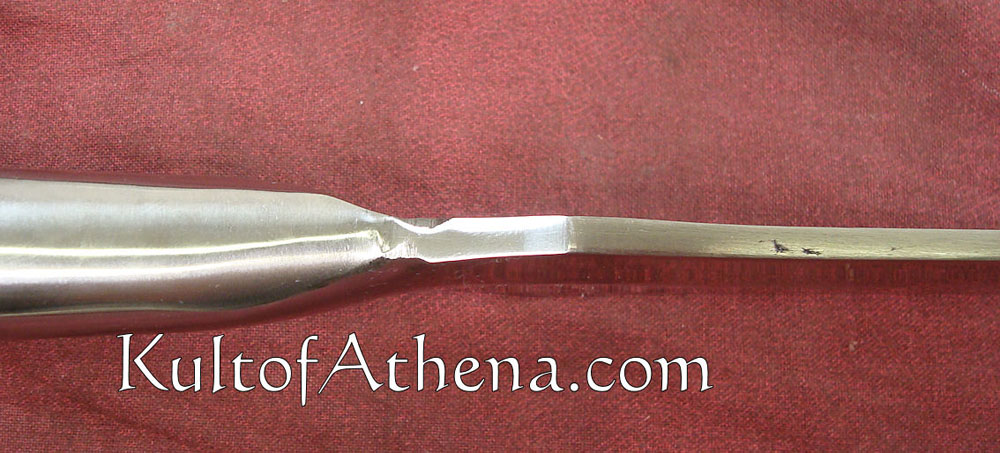

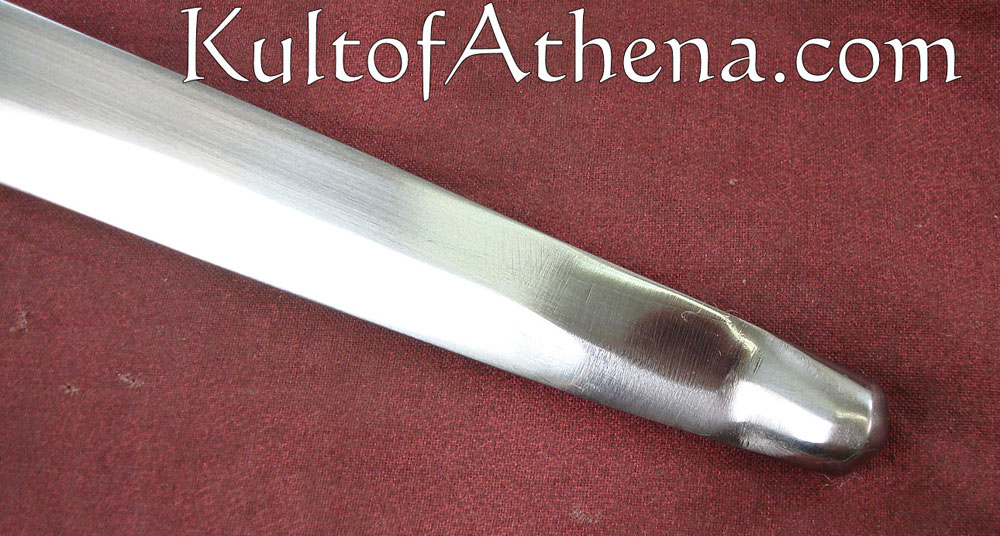
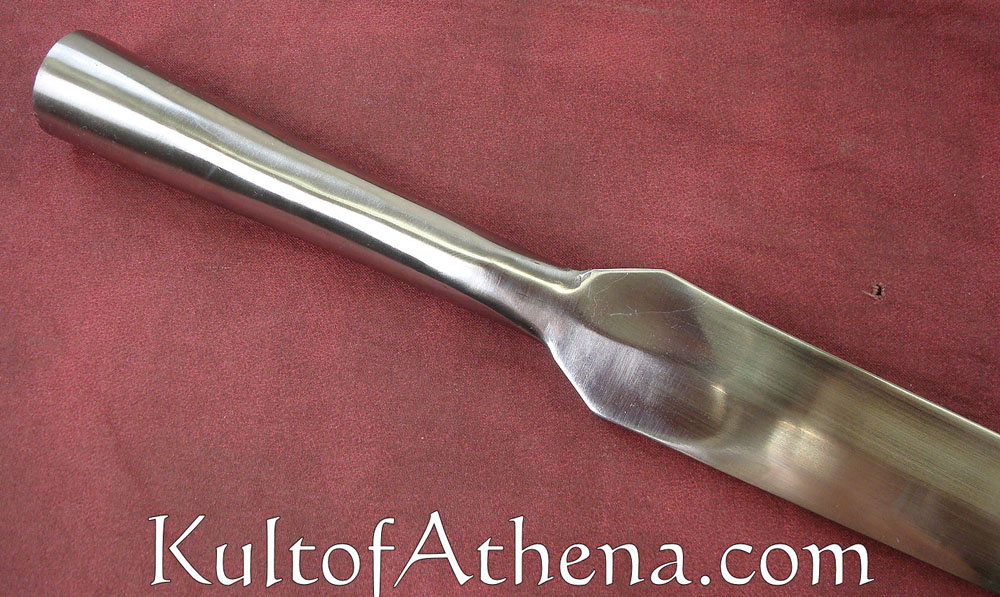
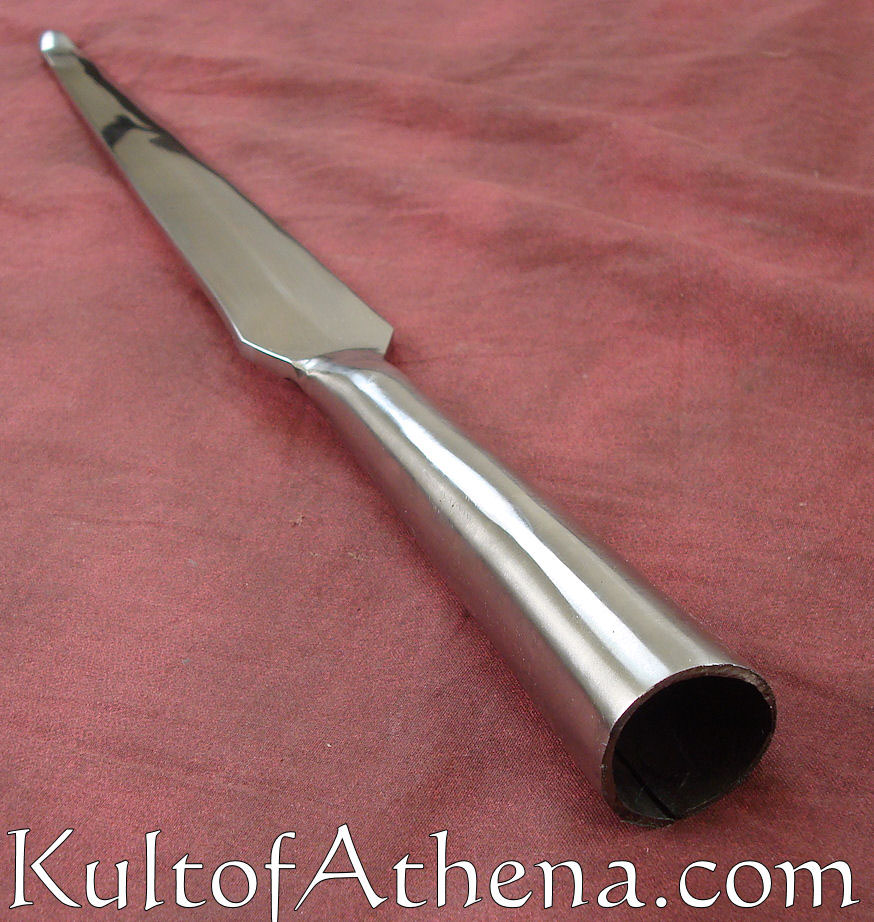

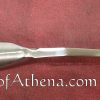
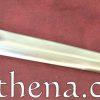
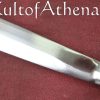
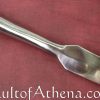
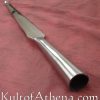
Reviews
There are no reviews yet.